In today’s rapidly evolving world, sustainable innovations are crucial in addressing environmental challenges and promoting social progress.
Undoubtedly, startups and entrepreneurs are at the forefront of developing groundbreaking solutions.
However, bringing these innovations to market requires rigorous testing and validation in real-life environments.
That’s where Innofest, in collaboration with StartupAmsterdam and the City of Amsterdam’s Urban Innovation Team, comes in.
The importance of testing innovations
Launching a product or service without proper testing can be detrimental to its success.
Many entrepreneurs make this mistake, leading to a slow death of their innovation due to a lack of market fit.
Innofest recognises this challenge and offers a unique opportunity for entrepreneurs to test their innovations at festivals — a real-life environment that closely resembles the market.
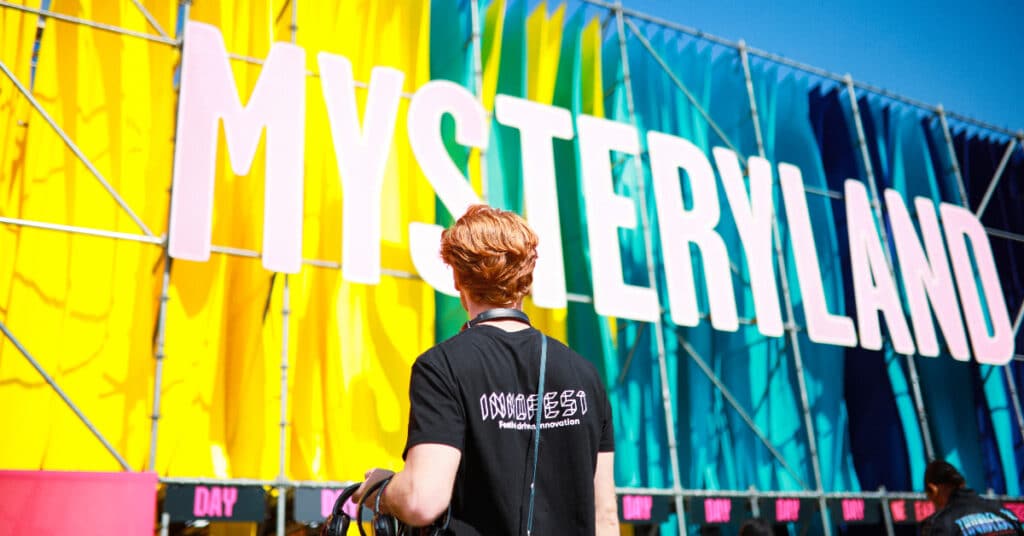
Testing innovations at Mysteryland
Last week, Mysteryland, one of the Netherlands’ premier dance festivals boasting an annual turnout of nearly 140,000 visitors, provided a unique opportunity for sustainable entrepreneurs to showcase their innovations on a grand stage.
Festivals like Mysteryland provide a temporary micro-society where entrepreneurs can test their innovations in real-world scenarios.
These events offer an ideal setting to address energy, waste, logistics, water, and food challenges.
The seclusion and flexibility of festivals often allow for more experimentation than in traditional public spaces.
Additionally, the presence of a diverse range of potential end users such as festival visitors, volunteers, and professionals provides entrepreneurs with valuable feedback.
Innofest, with its experience in supervising over 200 test cases at festivals and living labs, recognises the potential of festivals as testing grounds for sustainable innovations.
The tests at Mysteryland are supervised by Innofest and made possible by StartupAmsterdam , the Urban Innovation Team of the Municipality of Amsterdam, Goeie Grutten, LiveGreen, One Resilient Earth, Green Events , the EU and the Ministry of Infrastructure and Water Management.
The six sustainable innovations tested at Mysteryland are:
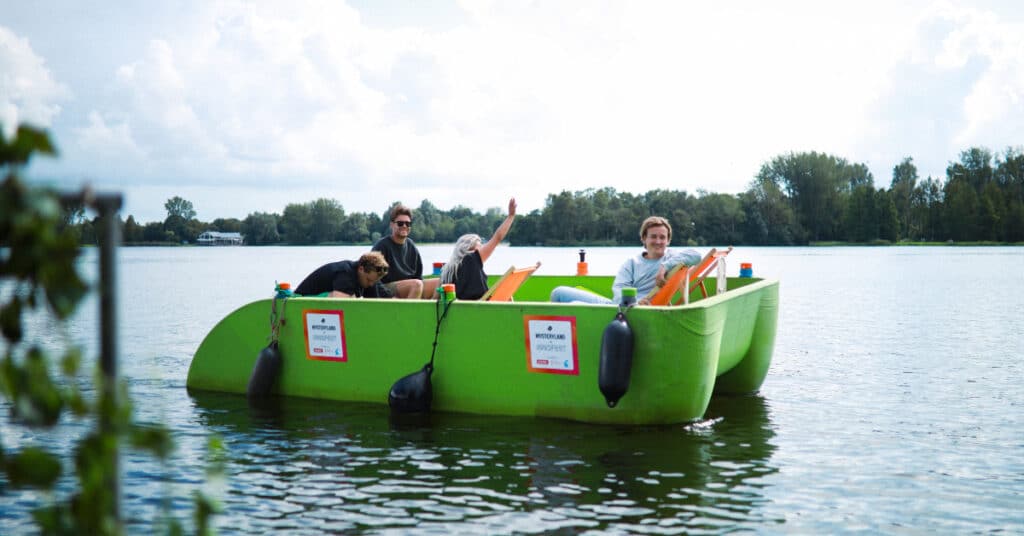
Drifty: A 3D-printed boat made from recycled PET bottles
HQ: Amsterdam
DRIFTY aims to make sustainable sailing accessible to everyone. Their innovative 3D-printed boat is constructed from recycled PET bottles.
At Mysteryland, the festival-goers participated in user-friendliness trials as they navigated festival grounds aboard the eco-friendly vessel, shuttling artists between backstage and stages.
DRIFTY’s long-term vision encompasses boat rentals on a subscription basis, prompting festival visitors to share their opinions on diverse subscription models and contribute ideas about sustainability and circularity in Marktstraat.
Louden Jansen, the visionary behind DRIFTY, shared his insights, “People truly appreciate the recycling aspect of the boat. Polyester boats, for instance, typically end up as scrap. The beauty of our boats lies in their end-of-life cycle – they can be effortlessly recycled through shredding, paving the way for a new boat to emerge from a 3D-printer.”
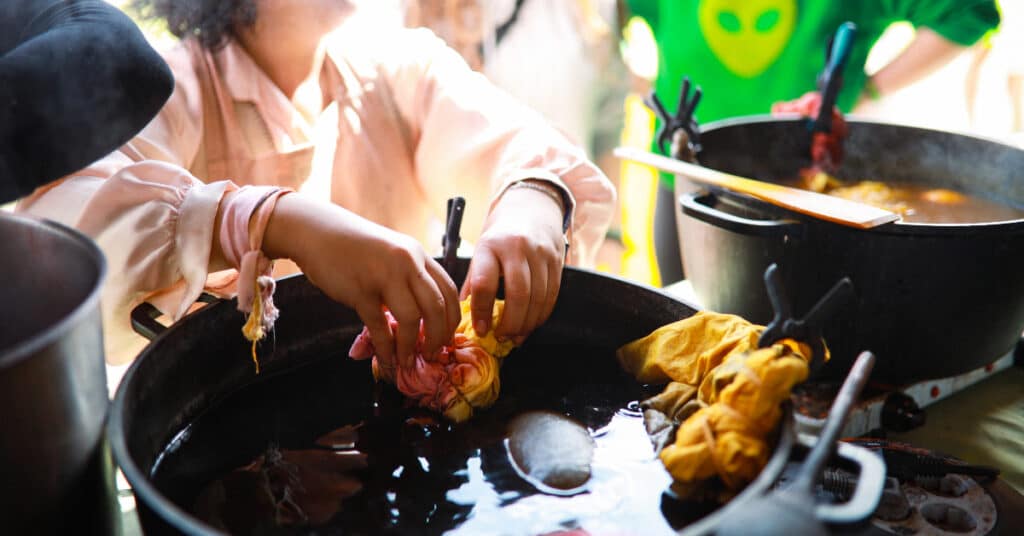
Roua Atelier: Ecologically responsible textile paint
HQ: Amsterdam
Roua Atelier seeks to improve sustainability in the textile industry by producing dyes from natural paint pigments derived from plants and waste.
At Mysteryland, the entrepreneur engaged festival attendees in discussions about toxic substances in textile dyes and involved them in creating dye from waste materials.
Visitors in the Marktstraat area were allowed to paint their bandanas and bracelets, fostering awareness about environmentally conscious textile practices.
“We demonstrated the transformative power of leftover festival food through engaging workshops, showcasing vibrant colors, and engaging in thought-provoking discussions about forging a sustainable clothing industry,” says Roua ALHalabi, founder of Roua Atelier. “Many expressed surprise at the impact of their clothing choices on our environment and health, with some committing to scrutinise clothing labels more closely.”
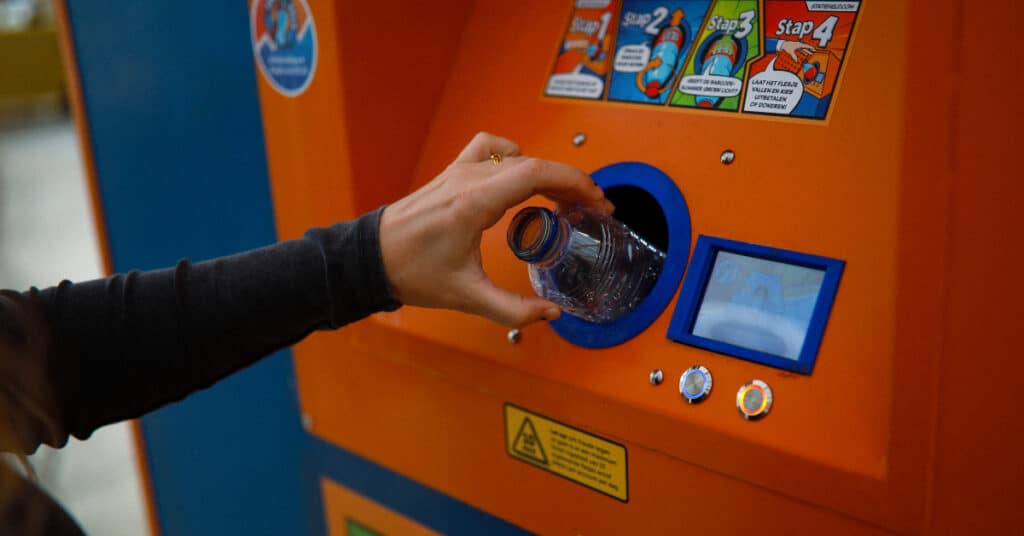
StatieHeld: Easily recycle bottles and cans
HQ: Amsterdam
StatieHeld addresses the issue of low recycling rates for bottles and cans by providing a quick and easy recycling solution.
Their recycling bins allow users to receive their deposit back immediately digitally.
To test the user-friendliness and functionality of their bins, StatieHeld deployed them at the entrances and campsite of Mysteryland. This initiative aims to encourage festival-goers to recycle and reduce unnecessary waste.
Valerie van Zuijlen, Creative Director at StatieHeld says, “We positioned two bins at the entrances of the festival and within the first day alone, we managed to fill three 240-liter bags. The feedback has been overwhelmingly positive, people are happy to have a convenient means to discard their cans and bottles while also getting their deposits back.”
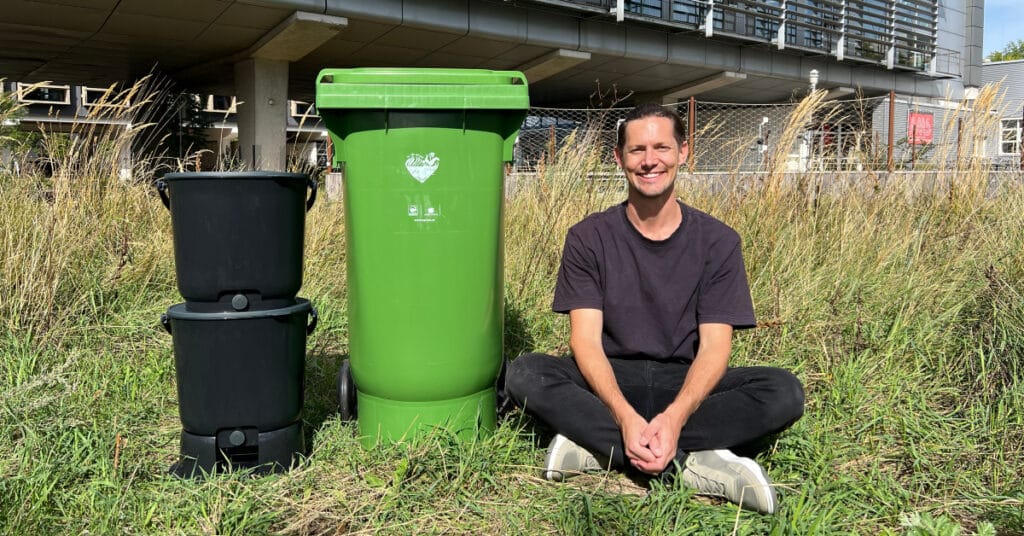
Spore: Measuring waste at festivals
HQ: Amsterdam
Spore specialises in waste metres that monitor, report, and verify the presence of contaminants in waste streams. By providing festivals with insights into waste contamination, Spore helps reduce waste costs.
Mysteryland served as an experimental ground to evaluate the effectiveness of Spore’s waste metres in the crew kitchen. Sensors positioned above trash bins tracked pollution levels, with AI technology identifying pollutants.
This trial aimed to determine if such AI solutions could offer insights into festival pollution levels, potentially informing behavioural and technological interventions.
Guy Vincent, co-founder of Spore, highlighted the trial’s achievement, “Surpassing our 10,000-image target, we amassed over 20,000 images, which will be used to train our AI models to detect contaminants in waste streams. We focused on identifying plastics in catering bins at the backstage crew area of Mysteryland. The test underscored the necessity for autofocus cameras to address challenges related to focus, height, and distance.”
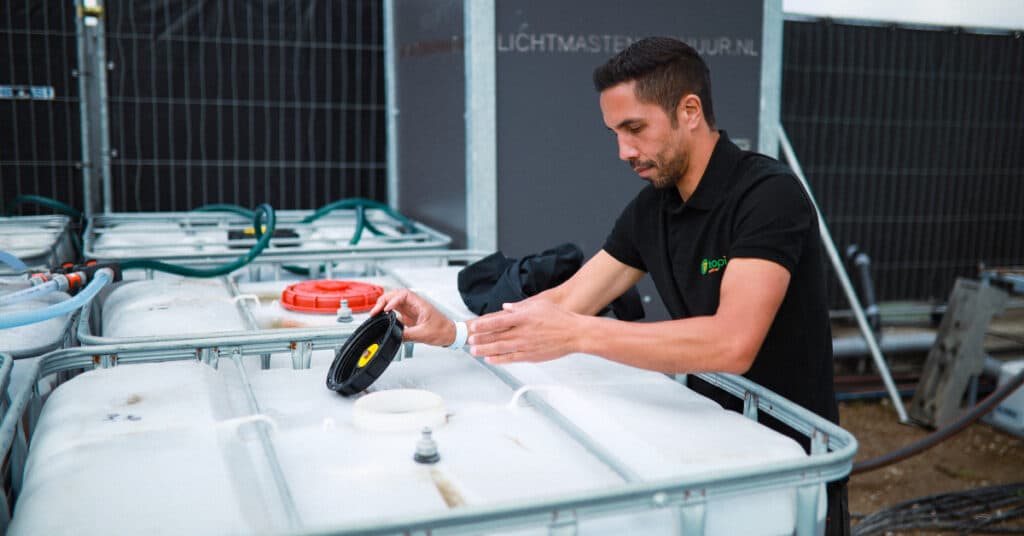
Toopi: Collecting urine to improve farmland
HQ: France
Urine contains valuable nutrients that can improve the fertility of agricultural land.
French circular startup Toopi Organics introduced a concept by collecting human urine and converting it into an eco-friendly agricultural biostimulant via fermentation.
With this approach, they aim to contribute to reducing the use of fertilisers in the agricultural sector.
Mysteryland became the experimental ground for Toopi Organics to validate their approach as they inspected the festival’s urinals to ensure the efficiency of their new holding tanks.
François Gerard, Project Lead of Toopi Belgium “We aimed to gather 10,000 liters of urine, and within 2.5 days, we successfully achieved this milestone. This benefits the environment by nurturing 400 hectares of crops ecologically, thereby enabling farmers to reduce their reliance on chemical fertilisers.”
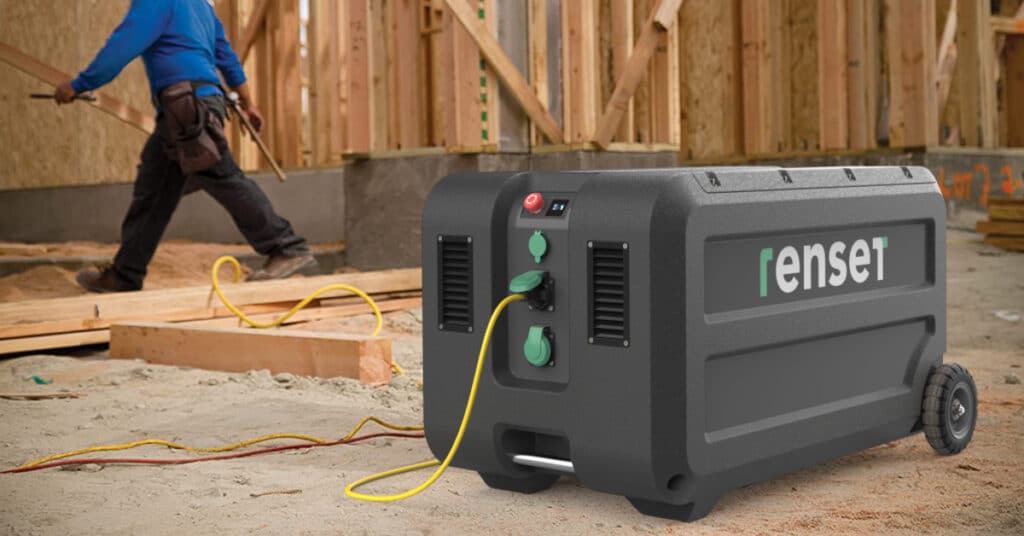
Renset: Green and portable energy supply
HQ: The Hague
Renset offers a mobile battery system for sustainable energy. With replaceable batteries, Renset ensures a clean and uninterrupted power supply.
Mysteryland provided the ideal backdrop to examine the feasibility of using Renset’s innovation in festival settings and assess the battery’s capacity.
The festival organisation collaborated with Renset to explore the application of this green energy supply, empowering the Marktstraat area with renewable energy.
Teun van ‘t Veer, Renset’s founder says, “We engaged end-users to evaluate ergonomics and collaborated with infrastructural management to ascertain whether the product’s capacity aligned with practical festival applications. The insights gained proved incredibly valuable. We discovered that our product, originally designed for construction contexts, could seamlessly transition to festival environments, albeit with a few nuanced differences. We’re incorporating all these findings into the final design, which is anticipated to be available for purchase from early next year.”










01
From telecom veteran to Dutch Startup Visa success: The Jignesh Dave story